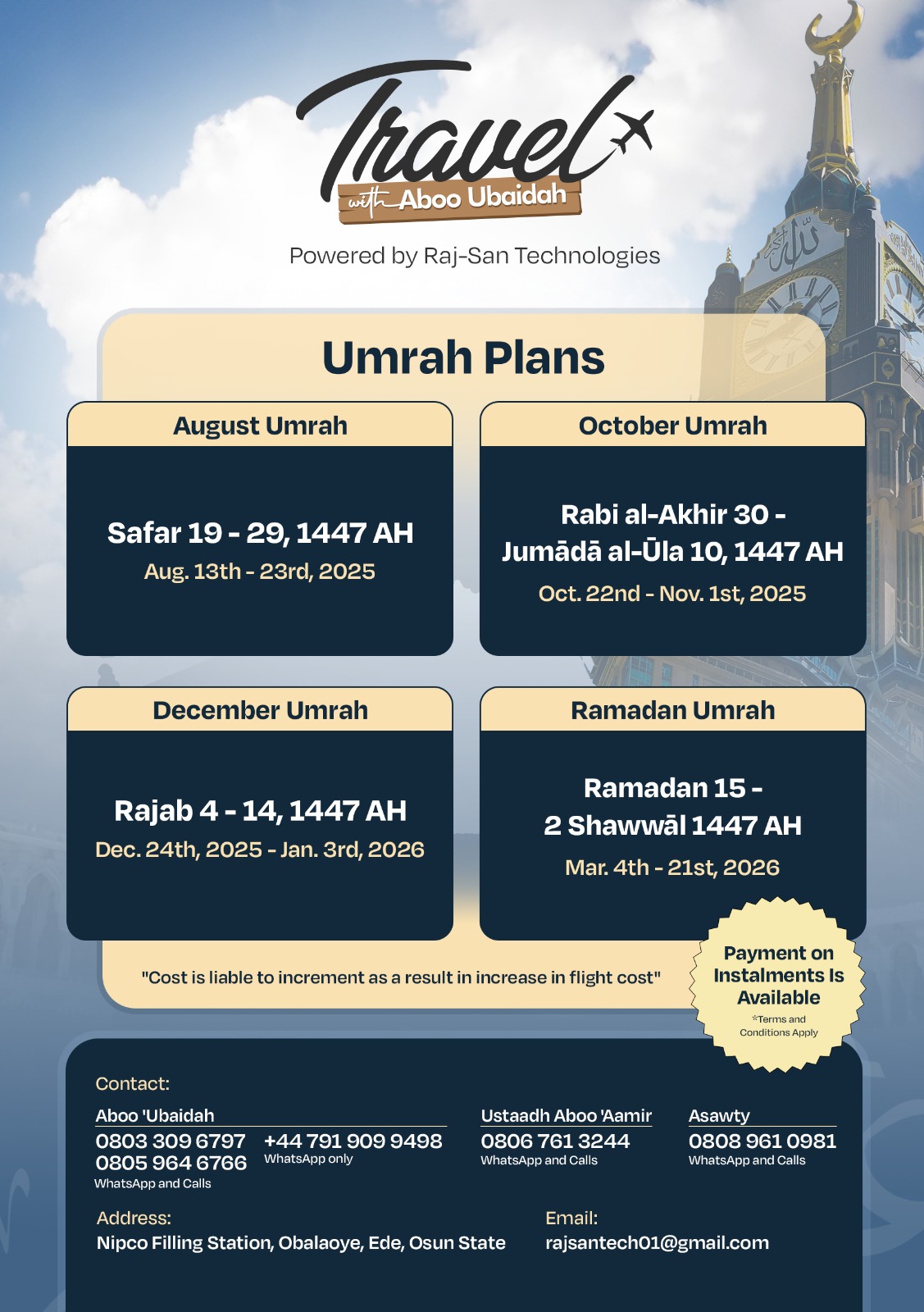The Synopsis:
• That the proofs of the Shariah are numerous in explaining the importance of sticking to the Sunnah (of the Messenger of Allâh (salaLlaahu alayhi wa sallam) ) and shunning heresies. Allâh made obedience to Him and obedience to His Messenger (salaLlaahu alayhi wa sallam) an obligatory act upon every Muslim, male and female. Allâh did not leave a choice for any believer in any matter after the decree of Allâh and His Messenger (salaLlaahu alayhi wa sallam) in such a matter.
• That the Salafus-Sâlih (the Pious Predecessors) – may Allâh be merciful to them – used to be very severe against those who fabricate false reports (on the Messenger of Allâh (salaLlaahu alayhi wa sallam)) and they used to hand down every sort of punishment (against them) such as beating, imprisonment and what is similar. Among those who used to do that were Al-Imâm Al-Bukhârî, Yahyâ bn Ma'în, Al-Hâfizh Ibn Hajar, Jalâludîn As-Suyûtî, among others.
• That weak hadith is not such that can be worked with in the matters of the creed and rulings – as the best opinion has come with, because if such should be allowed, that will lead to the corruption of the religion (of Al-Islâm) to a gravity which none expect the Lord of the slaves can estimate, and that will make every falsehood promoter and every heretic to use such reports as points of reference for their falsehood, and that will make the scholars incapable of precisely documenting the rulings and the matters of creed due to numerous number of weak Ahâdîth that will be around.
• That scholars differ as to the ruling on working with weak hadith in meritorious deeds. There are three opinions on that, the best however is the one that says it is absolutely not permissible to work with weak hadith due to what has come on that in terms of a serious warning.
• That Allâh the Mighty mentioned the sacred months - in His Magnificent Book – in general terms without specifically mentioning their names. It was the Messenger of Allâh (salaLlaahu alayhi wa sallam), as it has come in the Sunnah, that named them in their names.
• That the Sacred Months are Muharram, Rajab, Zhul-Q'adah and Zhul-Hijjah. Allâh thus begins the year with the month of sacredness and finishes it with the month of sacredness.
• The Sacred Months are named so because of their sanctity and because of the illegality of sinning in them and the gravity of rewards that can accrue when good deeds are carried out in them.
• Indeed the Sacred Months have a lot of excellence. Among such is their sanctity in terms of shunning what Allâh prohibits therein like sins and oppression. Among such is prohibition from commencing a fight against the polytheists therein, according to the best opinion. So also is fasting in them.
• That the best among the Sacred Months is the month of Zhul-Hijjah, according to the best opinion.
• Rajab is named Rajab because it is held in a high esteem. Another opinion says it is named Rajab because the angels used to come there in manifolds to extol Allâh and praise Him. There is a hadith of the Messenger of Allâh (salaLlaahu alayhi wa sallam) on that but it is a fabrication.
• That the months of Rajab has several names; some of the scholars say its names are up to eighteen.
• That the People of the Time of Ignorance among the Arabs used to hold the month of Rajab in a high esteem; the tribe of Mudar were much in extolling the month. This respect they had for Rajab at times was borne out of their belief regarding it; and at times, through their speech and deeds among which was their act of slaughtering (in the month) which they called Al-Atîrah or Ar-Rajabiyyah. Among their other acts was that they used to wait for the month of Rajab to make invocations against an oppressor. So also was their act of prohibiting fighting in Rajab, among other acts.
• That the majority of the Ahâdîth that have come on fasting in the month of Rajab are lies and fabrications upon the Messenger of Allâh (salaLlaahu alayhi wa sallam). The rest are weak, therefore, they are not sufficient as proofs.
• The number of fabricated Ahâdîth on the excellence of fasting in the month of Rajab are up to eighteen; I brought all of them (in the original work). The weak Ahâdîth that are mentioned are six in all. • There are other authentic Ahâdîth but most of them do not plainly say Rajab should be specifically taken for fasting. My research in this area ends with three Ahâdîth.
• It is based on this precept that it should be known that there is no established excellence or reward for specific fasting in the month of Rajab. Therefore whoever observes fasting in it upon the thought that such fasting is rewarding, his deed will be rejected; it will not be accepted, due to the statement of the Messenger of Allâh (salaLlaahu alayhi wa sallam):
((مَنْ عَمِلَ عَمَلًا لَيْسَ عَلَيْهِ أَمْرُنَا فَهُوَ رَدٌّ)) .
'Whoever carries out a deed not according to our command will have it rejected.'
• That whoever observes days of fasting in the month of Rajab which he has become used to in other months, there is no blame upon such because the basis of the fasting is legal.
• That the professional fabricators of Ahâdîth specialized in fabricating many Ahâdîth regarding establishment of Prayers in the month of Rajab; they gave names to these Prayers, at times, they gave them deceitful names such as Salâtur-Ragâib [Prayer of the Desirous of Goodness]… at times, they will attribute those Prayers to days and periods which those Prayers will be carried out. An example of that is the 'Prayer in the Night of Mid-Rajab'.
Another example is 'Prayer in the First Night of Rajab after Sunset,' 'Prayer in the First Night of Rajab after Nightfall,' or Salâtur-Ragâib (or that is called As-Salâtul-Ithnayn 'Ashariyyah [Prayer of Twelve Units]). Another one was the Prayer attributed to Uways Al-Qar'nî (the great Follower after the Companions), so also is the 'Prayer in the Night of Mid-Rajab', or 'the Day of Al-Istif'tâh': This Prayer has three manners of its observance, as it has come in their reports. Others include 'Prayer of Dâwud's Mother,' 'Prayer in the Night of Mi'râj,' 'Prayer in the Last Friday of Rajab' – a Prayer that is observed to seek a long life; 'Prayer in the Last Night of Rajab;' and general observance of Prayers in Rajab.
• Other acts apart from fasting and prayer in Rajab are mentioned; among them are the following:
Performing Umrah (Lesser Hajj) in Rajab upon the belief it has a special virtue. There is no doubt in the nullity of this claim because of no proof in support of it.
So also is Al-Atîrah in Rajab; this is slaughtering of an animal that is specially done in the month of Rajab. Islam has nullified it.
So also (is the belief) that Allâh erases and establishes what He wishes (of matters of existence) in the tenth day of the month of Rajab. The hadith reported on that is weak.
So also is the belief that Zakkâh is only payable in the month of Rajab.
So also is the act of giving charity on behalf of the dead ones.
So also is the act of limiting visits to the graves to Rajab.
So also are the supplications that are only made in Rajab; all those are fabricated and heretical.
• Later I, after research, came across three Ahâdîth that contain prohibition from fasting in Rajab. One of them is the hadith recorded on the authority of Ibn Abbass – may Allâh be pleased with father and son; the second is recorded on the authority of Zayd bn Aslam; the third hadith on the authority of Uthman bn Hakeem Al-Ansâri, may Allâh be pleased with them all.
That after an investigation and study, it became plain that the first two hadith are weak, as for the third hadith, it does not indicate a prohibition from fasting in Rajab rather it prohibits specifying Rajab for fasting.
That be as it may, the prohibition is only with respect to a person that observes fasting in the month aiding, in the process, the custom of the Period of Ignorance. But if he were to merely observe its fasting and wherein he does not make it obligatory (upon himself or others) or specify some days therein for fasting or some nights for observance of night (supererogatory) prayers upon the belief that it is part of the Sunnah (to do so). Thus, whoever observes the fasting without all those encumbrances, then there is no blame upon him. Unlike if he were to specify the fasting or make it obligatory then that is prohibited.
• I ended the book with mention of (some) supererogatory fasting so as to serve as a proof for those who love to tread (the right path) and who love to carry out (meritorious religious) rites, that they will be able to take from among them the guidance of their Prophet (salaLlaahu alayhi wa sallam) regarding fasting; with that they will become successful upon following (their Messenger (salaLlaahu alayhi wa sallam)), and with that they will become safe from heresy.
Among his guidance regarding fasting are the following:
Fasting in the month of Muharram, fasting in 'Âshurâ (tenth day of Muharram), fasting on the Day of Arafah for those not on hajj, fasting much of Shaban, fasting six days in the month of Shawâl, fasting nine days in the month of Zhul-Hijjah, fasting on Mondays and Thursdays, fasting on the White Days (13th, 14th and 15th day) of every (lunar) month, fasting three days in every month and fasting in every other day.
• That the lawgiver prohibits us from fasting in the following circumstances:
Fasting on the occasions of the Two Festivals (Eidul-Fitr and Eidul-Adh'ha), fasting three days after Eidul-Adh'ha, singling Friday for fasting, singling Saturday for fasting, fasting on the day of doubt (regarding the commencement or the end of Ramadan), fasting all days of the year, continuous fasting (two or more days) without a break, fasting of a woman while her husband is present and without his permission, fasting of a woman in her menstrual cycle or a woman in postpartum and fasting of a visitor.
• Just as there are lessons in this prohibition with which one will come to know the mercy and ease in this religion (of Islâm); these lessons are six.
Allâh knows better.
Dr Faadil can be reached through this e-mail: [email protected], or called on +2347066231687

